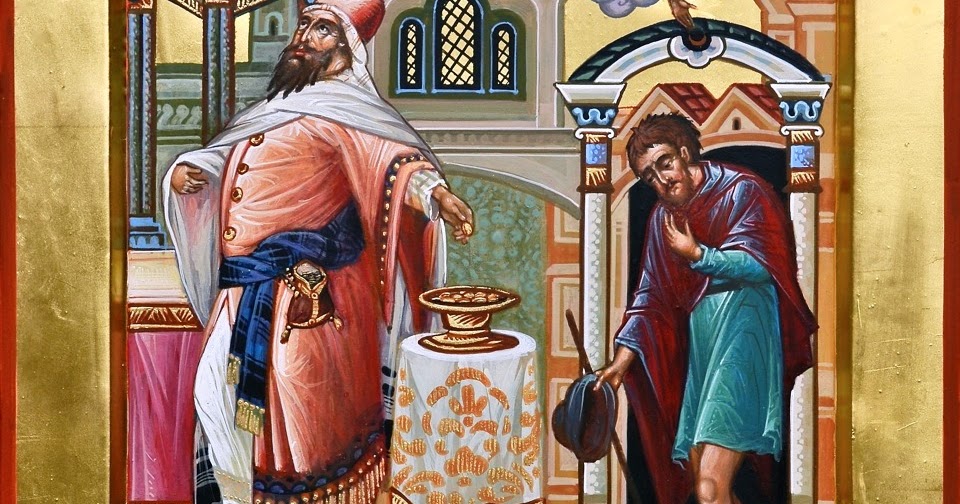 For Byzantine Catholics, Sunday Feb. 10 is the Sunday of the Publican and the Pharisee, which is the first of then “pre-Lenten Sundays.”
For Byzantine Catholics, Sunday Feb. 10 is the Sunday of the Publican and the Pharisee, which is the first of then “pre-Lenten Sundays.”
The journey of the feast of lights was a journey to specific holy places. It is a journey which we now make in spirit, in order to find the light of Christ. Soon after this journey, we begin another journey, going with our Lord to Jerusalem, as he foretold in the Gospel of St. Luke: “When the days for his being taken up (which John calls his glorification) were fulfilled, he resolutely determined to journey to Jerusalem.” During the Great Fast, then, we make another journey that ends in the holy city of Jerusalem, as Jesus said, “Yet I must continue on my way today, tomorrow, and the following day, for it is impossible that a prophet should die outside of Jerusalem” (Luke 13:33). But his death is his glorification, “by death he tramples death,” and it is the way to resurrection, to a resurrection promised to all. Our journey likewise ends in life (resurrection) and in light, as the Gospel of Paschal Sunday, the Day of Resurrection says, “ The light shines in the darkness, and the darkness has not overcome it” (John 1:5).
The journey to light in the Christmas – Theophany – Encounter cycle ends in the temple, where the incarnate temple of God enters into the holy Temple, and there is proclaimed to the world by Simeon and Anna, who witness to his glory. The journey of the Great Fast then begins in the Temple, and two men go there to pray. One witnesses to pride and self-righteousness, the other to humility and repentance. The whole of the Great Fast is for us to make our choice on which to imitate. To be a Christian means to hear our Lord’s warning, “Whoever exalts himself will be humbled, but whoever exalts himself will be exalted.” This is the central meaning of the Great Fast, as our Lord invites us, “Come and see.”
Meditation by Archpriest David Petras
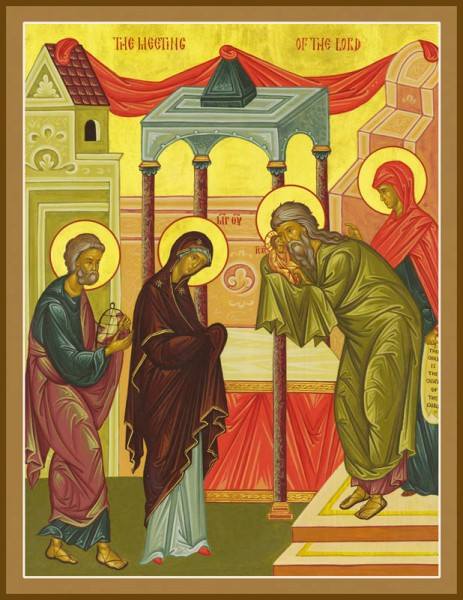 “The Lord said to Moses on that day he brought the sons of Israel out of the land of Egypt. He said: Consecrate to me every firstborn; whatever opens the womb among the Israelites” (Exodus 12:51). In this feast, the last of the Christmas cycle, the Feast of Light, Mary and Joseph bring the child Jesus to the temple to fulfill this commandment.
“The Lord said to Moses on that day he brought the sons of Israel out of the land of Egypt. He said: Consecrate to me every firstborn; whatever opens the womb among the Israelites” (Exodus 12:51). In this feast, the last of the Christmas cycle, the Feast of Light, Mary and Joseph bring the child Jesus to the temple to fulfill this commandment.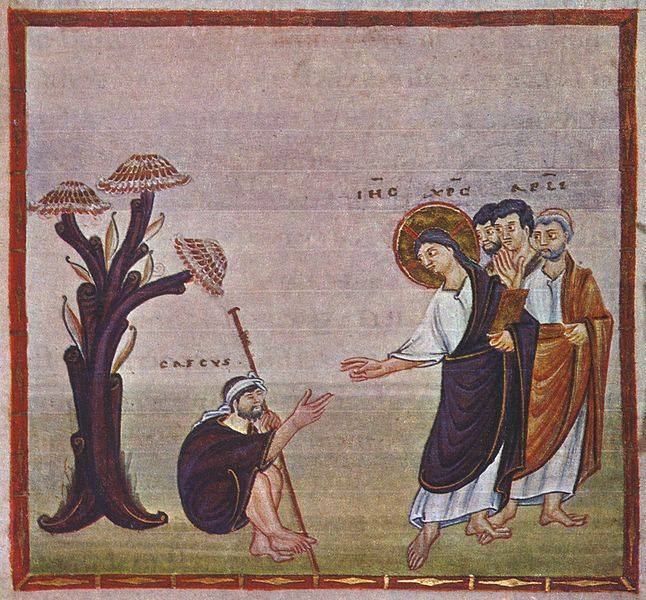 Read: 1 Timothy 1:15-17; Luke 18:35-43 (Readings of the 31st Sunday after Pentecost)
Read: 1 Timothy 1:15-17; Luke 18:35-43 (Readings of the 31st Sunday after Pentecost)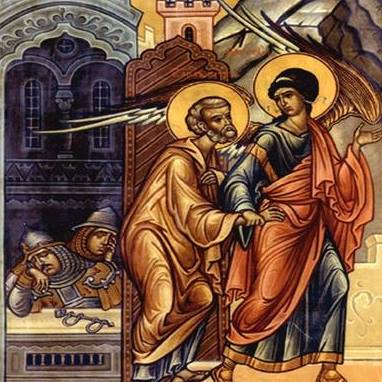 Our Lord says of Peter, “Blessed are you, Simon son of Jonah. For flesh and blood has not revealed this to you, (Simon has confessed Jesus to be the Messiah, the Son of the living God) but my heavenly Father. And so I say to you, you are Peter [the rock], and upon this rock I will build my church, and the gates of the netherworld shall not prevail against it” (Matthew 16:17-18).
Our Lord says of Peter, “Blessed are you, Simon son of Jonah. For flesh and blood has not revealed this to you, (Simon has confessed Jesus to be the Messiah, the Son of the living God) but my heavenly Father. And so I say to you, you are Peter [the rock], and upon this rock I will build my church, and the gates of the netherworld shall not prevail against it” (Matthew 16:17-18).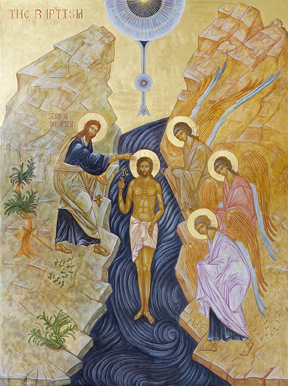 The feast of Theophany is not only about baptism in water, but about the gift of the Holy Spirit. The Kontakion declares, “You have revealed yourself to the world today; and your light, O Lord, has set its seal on us.” When we enter into the life of the Trinity, we receive the gift of the Spirit as the priest anoints us with the words, “the seal of the gift of the Holy Spirit.” We find this phrase in the Epistle of St. Paul to the Ephesians, “In [Christ] you also, who have heard the word of truth, the gospel of your salvation, and have believed in him, were sealed with the promised holy Spirit, which is the first installment of our inheritance toward redemption as God’s possession, to the praise of his glory” (1:13-14). Today in the Church, there is a movement called the “charismatic movement.” It wants to re-emphasize that all who have been baptized into Christ have received the gift of the Holy Spirit. This manifests itself in different ways according to our individual talents. On the
The feast of Theophany is not only about baptism in water, but about the gift of the Holy Spirit. The Kontakion declares, “You have revealed yourself to the world today; and your light, O Lord, has set its seal on us.” When we enter into the life of the Trinity, we receive the gift of the Spirit as the priest anoints us with the words, “the seal of the gift of the Holy Spirit.” We find this phrase in the Epistle of St. Paul to the Ephesians, “In [Christ] you also, who have heard the word of truth, the gospel of your salvation, and have believed in him, were sealed with the promised holy Spirit, which is the first installment of our inheritance toward redemption as God’s possession, to the praise of his glory” (1:13-14). Today in the Church, there is a movement called the “charismatic movement.” It wants to re-emphasize that all who have been baptized into Christ have received the gift of the Holy Spirit. This manifests itself in different ways according to our individual talents. On the 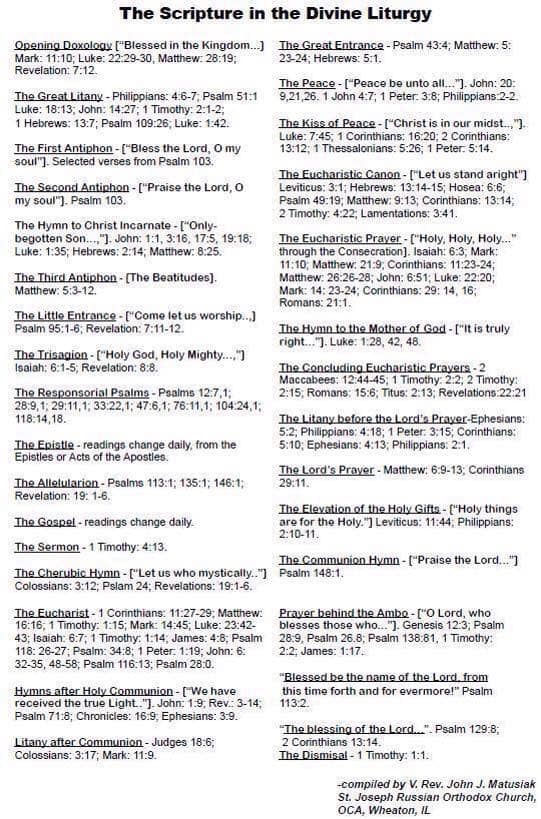
 On this Sunday, we commemorate three men who had a relationship with Jesus: David, his forefather; Joseph, his foster father; and James, his brother through Joseph. Each of these man were shown mercy by God. David committed a great sin, to win the wife of Uriah, he had Uriah put into the front lines of battle, so that he was killed. The prophet Nathan brought this sin to light and David did repentance and lost his son. Joseph found Mary pregnant and decided to divorce her, but an angel told him to take her as his wife. James was among Jesus’ relatives who did not accept him as a prophet, but after the resurrection, he repented and became the leader of the church at Jerusalem.
On this Sunday, we commemorate three men who had a relationship with Jesus: David, his forefather; Joseph, his foster father; and James, his brother through Joseph. Each of these man were shown mercy by God. David committed a great sin, to win the wife of Uriah, he had Uriah put into the front lines of battle, so that he was killed. The prophet Nathan brought this sin to light and David did repentance and lost his son. Joseph found Mary pregnant and decided to divorce her, but an angel told him to take her as his wife. James was among Jesus’ relatives who did not accept him as a prophet, but after the resurrection, he repented and became the leader of the church at Jerusalem.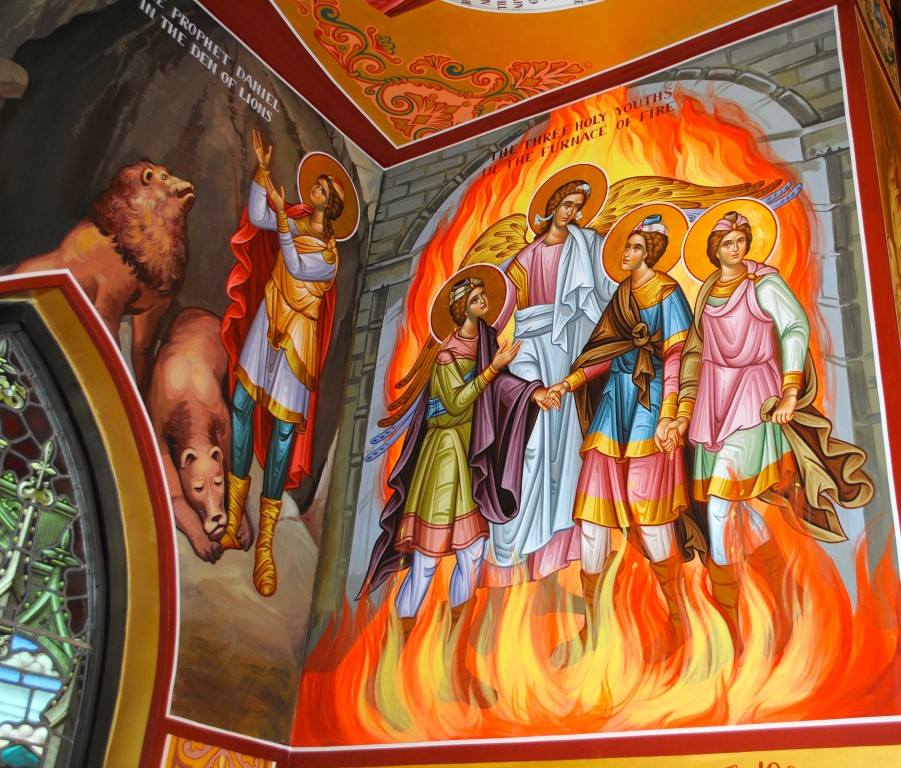 The Byzantine liturgical calendar of the Ukrainian Church has given us today the feast of The Three Holy Children. The feast day commemorates a most fascinating event (experience) of people of faith in the face of evil.
The Byzantine liturgical calendar of the Ukrainian Church has given us today the feast of The Three Holy Children. The feast day commemorates a most fascinating event (experience) of people of faith in the face of evil.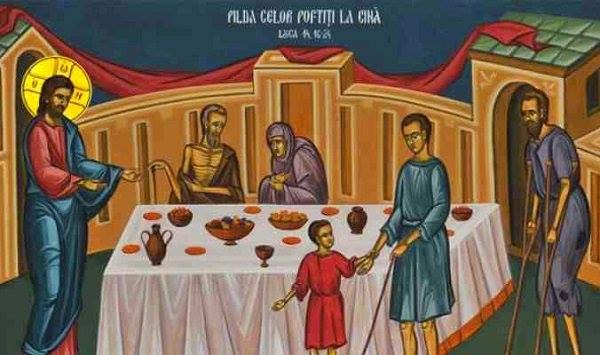 In Colossians 3:4 we read: “When Christ who is our life appears, then you also will appear with him in glory.”
In Colossians 3:4 we read: “When Christ who is our life appears, then you also will appear with him in glory.”